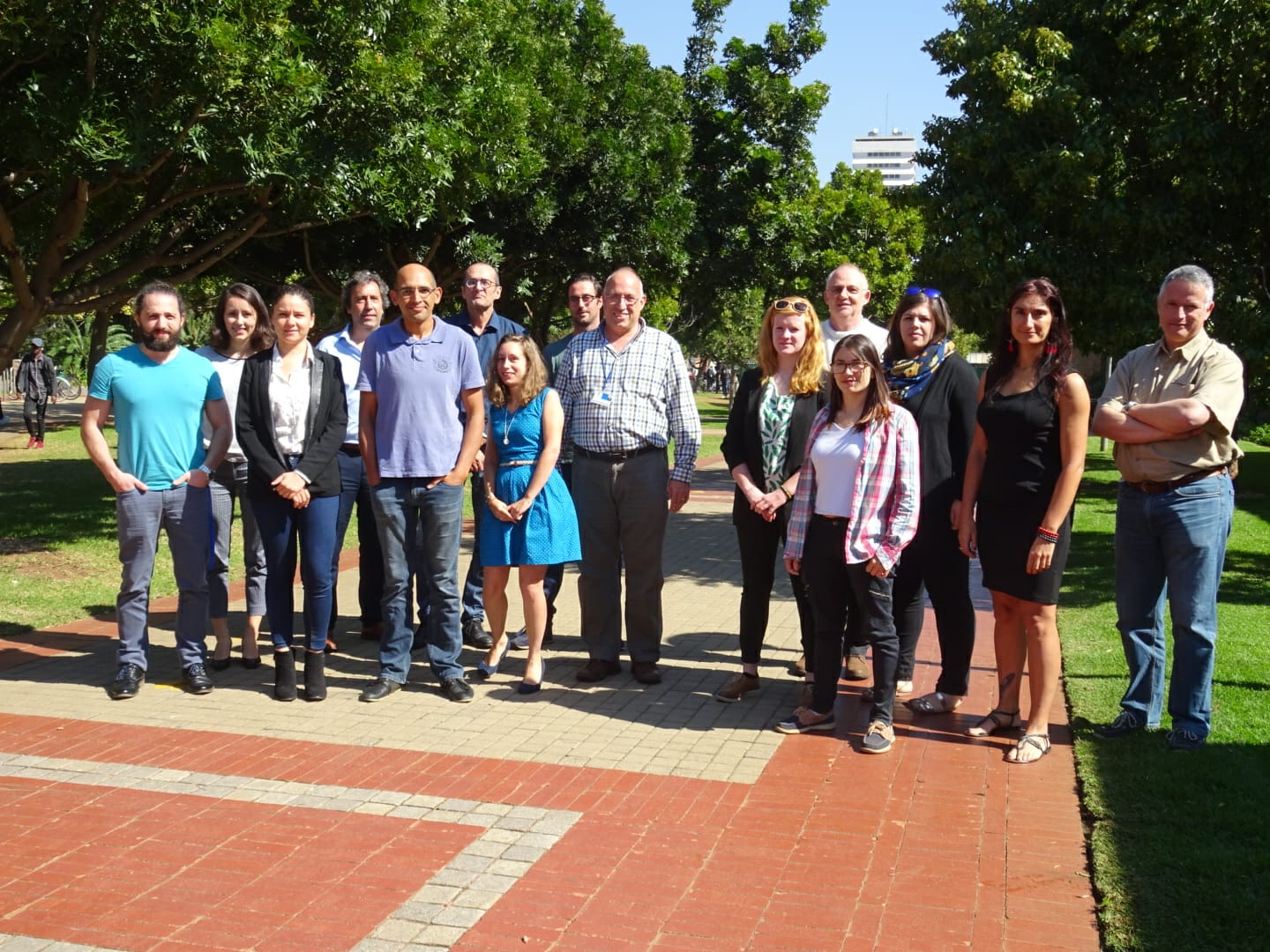French Researchers in South Africa meet in FABI 2019-05-31
On the 3rd of May 2019, FABI hosted the meeting of the French researchers in South Africa. Two postdoctoral fellows and two PhD students from FABI participated (Laure-Anne Poissonnier, Raphael Ployet, Elisa Pal and Joséphine Queffelec). The meeting is held every two months and is organized by the French Embassy and the Office for the presence of the IRD (Institute for Research & Development), the CNRS (National Center for Scientific Research) and the Cirad (Agricultural Research Centre for International Development) in South Africa. The presence of those French institutes in South Africa aims at creating research collaboration and helping the development of South African research and education. The Office offers MSc bursaries and PhD travel grants for South African students that would like to go to France as part as their curriculum. For more information about the grants and bursaries, please contact Joséphine Queffelec (josephine.queffelec@fabi.up.ac.za).
The main objective of this month’s meeting was to make the French researchers familiar with the activities of FABI. Prof. Fanus Venter gave a presentation of FABI, its funding partners and activities as a research institute and consultant for the forestry and agricultural industry. The presentation was followed by a tour of the facilities.
The meeting continued with two scientific presentations. Dr. Séverine Jalouste presented the activities of the F’SAGRI, French-South African Agricultural Institute. The F’SAGRI is a research and training center that addresses food security and rural development issues in South Africa. They are based at the University of Fort Hare and offer high level degrees in food science, processing and agribusiness.
The second presentation by Joséphine Queffelec was entitled: “Interaction between Wolbachia and non-dipteran insects: is there a future for biocontrol?” Joséphine presented on her PhD research in FABI and the presentation was followed by a discussion about the issues linked to the biocontrol of insects using the bacterial symbiont, Wolbachia.
The researchers and staff of the embassy that participated in the meeting had very positive feedback and the institute and its facilities and thanked FABI for its welcoming atmosphere.


